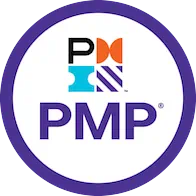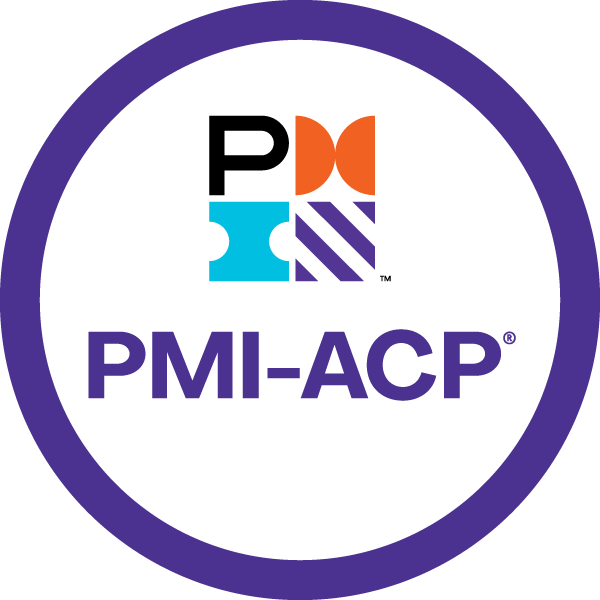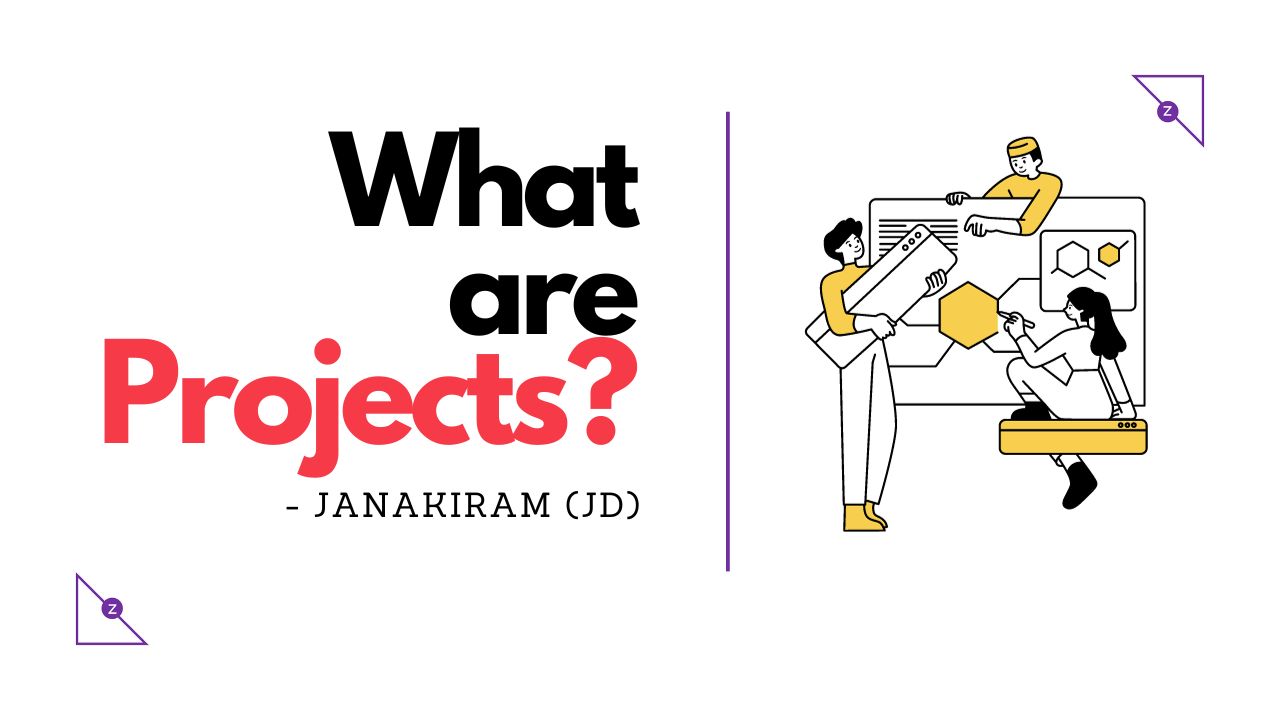Before we get into the official definition, let try to understand a Project in lay man’s terms.
Simply put, a Project is an “initiative”. Initiatives have certain goals to be achieved. But remember initiatives also need investments. And investment has investors who are keen on their Return on Investment (ROI). In other words Projects are bound by time, because investors like to see their profits on time.

In layman’s terms, a Project is a systematic way to achieve a Goal or Objective. It is a “method to madness” that organizations employ to achieve their means.
So what exactly is a Project?
The official definition of a Project from PMI®’s PMBOK® 7th edition says: “A temporary endeavor undertaken to create a unique Product, Service or Result. “

I referred the definition from PMBOK® 7th edition as it is the unofficial bible for Project Managers, which underwent decades of consolidation of Project Management standards and Practices
The key terms here are “temporary” and “unique”. Let us elaborate them further.
Characteristics
Temporary
Temporary here means that the Project has a Start Date and End Date. Like I mentioned earlier, Projects have investors who have put their money on the initiative. And every investment is time bound. Hence Projects are always tracked by an end date.
Picture this, most of the time your customers are more concerned about the schedule of the Project than anything else. That is because “Value” when delivered with wrong timing may not be much valuable (Pun unintended).

Unique output
Projects have unique outputs. It may be a product, a result or even a service. But it has to be unique. Anything that is not bound by time and produces something that is not unique can be considered as an Operation and not a Project.
Projects can have the following as outcomes
- Product: The output of a Project can be a Product by itself, like a “Mobile App” for example
- Service: Or it can be a service, for example Wedding Planning or Event Planning
- Result: Or you want to achieve a certain result as a goal. For example, improving the performance of your website by 50%
Examples

We observe a lot of Projects in our day to day life, though they may not be called as a Project. Some examples of Projects here:
- Construction of a House: A house has a certain specification (Goal). And certain time period by which it is delivered (Time).
- Releasing a Mobile App: You need to release the mobile app with certain features (Goal) and by certain milestone date (Time).
- Running a Wedding Event: This is a service. Here the event date is the deadline (Time). The activities on the leading event date are the Target (Goal).
- Launching a Satellite: Classic example of a Project. You work reverse from the Launch date (Time) and come up a plan for successful launch (Goal).
Project Management
Project Management is a combination of Process, Tools, Techniques and People put together by the organization to achieve the goals of the Project within the constraints.
Typically Project Management involves Planning, Execution and Closure phases. In fact PMI® has consolidated Project Management Process into 5 process groups.

Namely:
- Initiating: This is where the Organization acknowledges the existence of the Project and gives the Project Manager the authority to lead the Project. This is where the Vision of the project is identified and communicated. Once the Project Manager is identified and authorized, he proceeds to invite all the stakeholders to a “Kickoff” meeting. After which the Planning phase is initiated.
- Planning: Here is the Project Manager drives all planning related activities in the Project including Quality, Scope, Schedule, Cost, Risk, Communication, Stakeholder, Change Management etc., In traditional projects, you plan for the complete scope in a single shot. Where as in modern/Agile approaches in progressively elaborate.
- Executing: Simply put, here is where the team “follow the plans” sketched in the above phase. Here the team constantly monitors pre-determined “Metrics”. Any significant variation in metrics denote deviations from the actual Plans. This is where the “Monitoring and Controlling” process groups comes into the picture.
- Monitoring and Controlling: Here is where the team closely monitors whether there are any deviations between the Plan and Execution. Any deviations have be responded. And these deviations are typically handled through means of “Change Requests”
- Closing: This phase typically involves handing over the deliverables to the Customer and getting formal “Acceptance” from him. You need this acceptance to formally close the Project. In other scenarios, you may hand over the Project to another team. Or in the case of Product development, you may handover the deliverables to Operations team.
Projects Vs Operations
You might have observed by now that:
- Projects have specific timelines and have unique outcome
- Operations are not time bound and repeat the same outcome at various intervals
Typically, Project teams handover to Operations, but not always though. The mobile app development example is a Project, where the team has the specific goal of developing a mobile product with specific features. But do you do after you release the mobile app into the market? You would need to sustain the Product in the market wouldn’t you. This is where Operations comes into picture.

Day to day examples of Operations include (but not limited to):
- Customer support
- Production support
- Security
- Finance
- HR
Projects Vs. Programs
Programs are larger initiatives that run multiple related Projects together. Programs have goals, but they have to be split into multiple sub-initiatives for ease of management.
While a Project is a single focused endeavor with a narrower vision, a Program has a long term vision with a much broader focus. A Program typically has a coarse grained Goal. and is exactly why you need Projects underneath a Program to realize the Program goal.

Some examples:
- Digital Transformation: While the goal of the program is Digital Transformation, the underlying individual projects can target Agile Adoption, Cloud Computing Transformation, etc.
- Multiplex Program: A estate company may run a Multiplex program with underlying Projects focusing on building the Cinema hall, Shopping mall, Food court etc.
- Product Modernization: The goal of a Program in a Travel company is to modernize their service offerings. And the underlying Projects may have goals like Upgrading website, introducing a mobile app etc.
Conclusion
To summarize, Projects are a methodical way to attain a certain goal or solve a certain problem. The more complex your problem that is, the more methodical is your approach. But keep in mind that Projects are directly or indirectly aligned with the organizational strategy.
The primary purpose of Project is generate value. You may be do that by solving a problem or introducing a change or dealing with competition.

Our PMI® PMP®-Prep Course
If interested in this course, click here
- Case study based training
- LIVE instruction 36 Hours
- Post course guidance
- Exercise per topic
- 4 Mock exams for practice
- WhatsApp group support

Our PMI® ACP®-Prep Course
If interested in this course, click here
- WhatsApp group support
- 4 Mock exams for practice
- Exercise per topic
- LIVE instruction 20 Hours
- Post course guidance
- Case study based training

JD (Coach/Instructor/Writer)
JD (a.k.a Janakiram) is a Project Management Coach, Trainer Author and Practitioner @Zaidan Consulting. He comes with around 17+ Years of experience primarily from the Software Industry. He is certified on PMI® PMP®, ACP®, Scrum Alliance CSM and Microsoft Certified Solution Developer on C#.NET. He has also authored the book “Practical Agile for Beginners”

About Zaidan Consulting
Zaidan Consulting are specialists in Project and Program Management space. Our training offerings include:
- Project Management Training
- Agile Training
- PMI®-ACP® Prep Training
- PMI®-PMP® Prep Training
- PMI®-CAPM® Prep Training
- ScrumStudy™ Authorized Training Partner (A.T.P)
Or you can contact us @+(91) 7672011471
Or Email us: [email protected]
